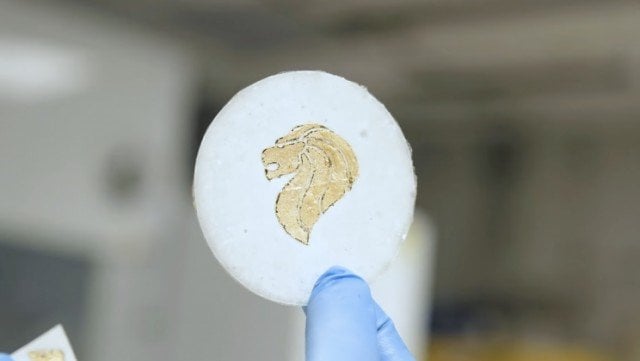Scientists have created paper-based batteries that can decompose in a month

Singaporean researchers at Nanyang Technological University have been able to create fast-degradable paper-based batteries. In the future, this technology can be applied to the manufacture of flexible wearable electronic devices.

To obtain a prototype battery without a hard shell, the scientists used a sheet of cellulose paper and a special hydrogel that filled the gaps between the fibers. Next, a zinc-carbon anode and a nickel-manganese cathode were applied to the sheet on both sides by means of a stencil printing plate. Then the resulting battery was placed in an electrolytic solution. Then the electrodes were coated with gold foil, which increased the conductivity.

During testing, this 4×4 cm battery with a thickness of 0.4 mm fed a small fan for 45 minutes. The device did not stop functioning even during twisting and other mechanical deformations.
Thanks to the materials of manufacture, such a battery can decompose in the ground within a few weeks. Nickel, manganese and zinc will oxidize into environmentally friendly oxide compounds.

To obtain a prototype battery without a hard shell, the scientists used a sheet of cellulose paper and a special hydrogel that filled the gaps between the fibers. Next, a zinc-carbon anode and a nickel-manganese cathode were applied to the sheet on both sides by means of a stencil printing plate. Then the resulting battery was placed in an electrolytic solution. Then the electrodes were coated with gold foil, which increased the conductivity.

During testing, this 4×4 cm battery with a thickness of 0.4 mm fed a small fan for 45 minutes. The device did not stop functioning even during twisting and other mechanical deformations.
Thanks to the materials of manufacture, such a battery can decompose in the ground within a few weeks. Nickel, manganese and zinc will oxidize into environmentally friendly oxide compounds.





There are no comments yet :(